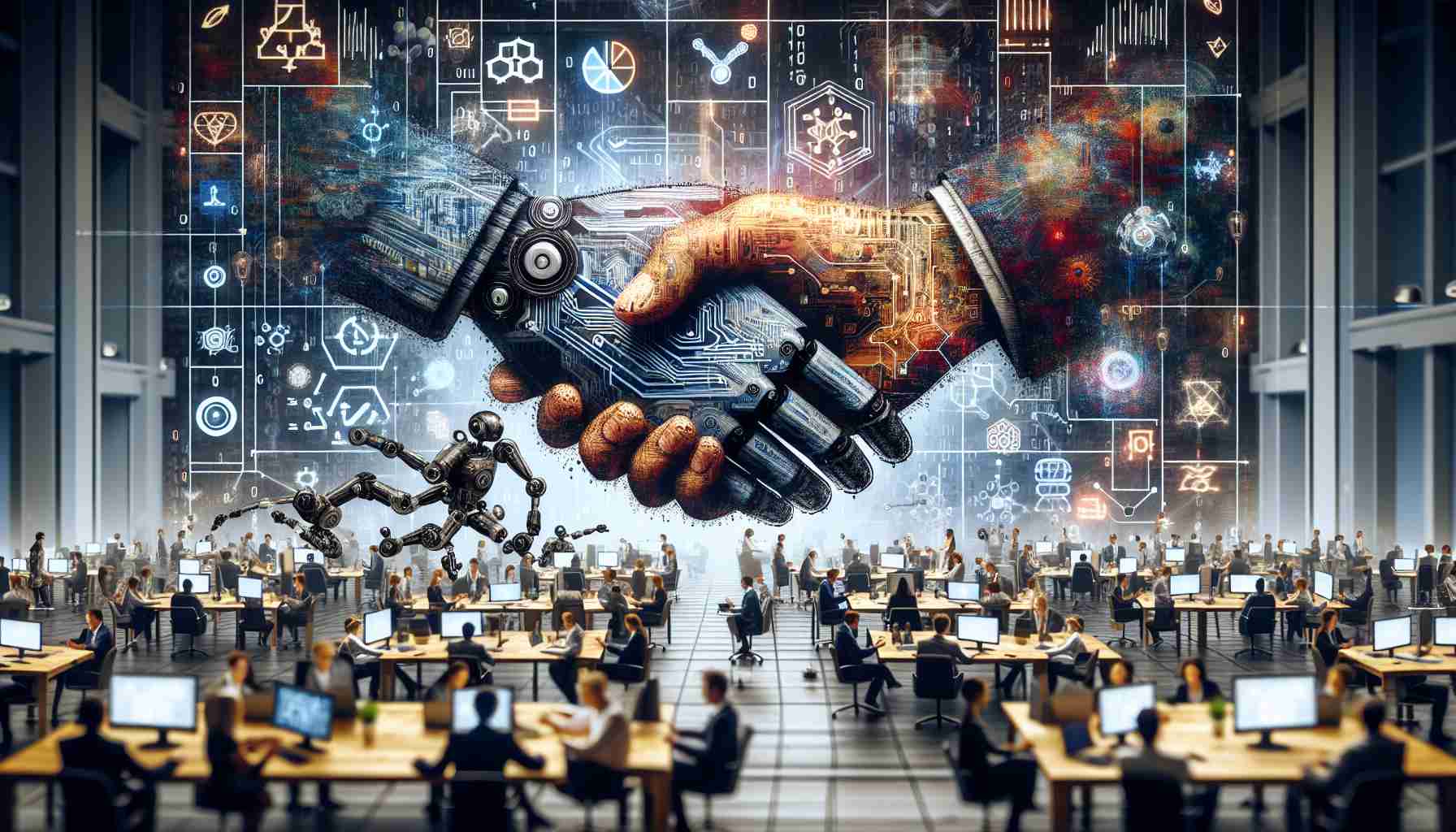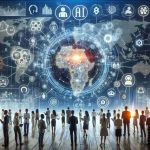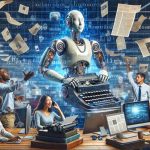In a recent blog entry, the CEO of OpenAI, Sam Altman, outlined a compelling vision for human advancement through artificial intelligence, predicting the emergence of superintelligence within the next few thousand days. Altman argues that current societal structures function as a form of enhanced intelligence, where the collective expertise surpasses that of any individual. This collaboration, he believes, will be further augmented by AI, enabling us to tackle problems that were previously insurmountable on our own.
He expressed confidence in the rapid evolution of AI technology, suggesting that soon we may witness capabilities that currently seem beyond belief. Even if the timeline extends, he assures that superintelligence is inevitable. This rapid progress, he notes, is largely due to the effectiveness of deep learning, which benefits from increased computational power and vast datasets.
Altman shares a vision where AI leads to significant improvements in daily life and proposes that it has the potential to stimulate economic growth while addressing critical global challenges. He imagines a world where repairing the climate, colonizing space, and uncovering the universe’s mysteries are commonplace achievements.
Although Altman is optimistic, he recognizes that economic success does not automatically lead to happiness. He warns that as AI transforms industries, it may also disrupt job markets. Nevertheless, he believes that humanity’s innate creativity will flourish alongside AI’s advancements, provided the right support systems are established to ensure equitable access and prevent societal divides.
Envisioning the Future of Humanity with AI: New Horizons and Challenges
As we stand on the precipice of an AI-driven future, it is essential to explore not only the prospects but also the profound implications this technology may hold for humanity. While the advantages of artificial intelligence are widely discussed, unanswered questions and potential challenges loom large, demanding our immediate attention.
What are the primary questions we need to address regarding AI’s future impact on humanity?
1. How will AI influence social structures and employment?
– AI has the potential to automate numerous jobs, leading to significant shifts in the workforce. While this could result in increased productivity, it may also cause economic instability for those whose jobs are replaced. A strategic approach is necessary to retrain workers and integrate AI responsibly into various sectors.
2. Can AI ensure equitable access to its benefits?
– As AI technologies advance, disparities could widen between those with access to AI innovations and those without. Discussions on how to bridge the digital divide are crucial to prevent societal inequities from deepening.
3. How can we maintain ethical standards in AI development?
– The integration of ethics into AI is paramount. Frameworks must be established to ensure that AI systems are designed with fairness, transparency, and accountability, addressing biases that can perpetuate inequality.
What are the key challenges or controversies associated with AI?
– Privacy Concerns: AI systems often require vast amounts of data, raising concerns about personal privacy and data security. Striking a balance between innovation and privacy rights is a challenge that regulators and developers must navigate carefully.
– Regulation vs. Innovation: Governments are tasked with the difficult job of creating regulations that ensure safety and fairness without stifling innovation. Finding this equilibrium is a significant challenge for policymakers worldwide.
– Unsupervised Learning Risks: Advanced AI systems may evolve beyond our understanding, leading to potential uncontrolled behaviors. Ensuring that AI remains aligned with human values and goals is critical for its safe deployment.
What are the advantages and disadvantages of AI for humanity?
Advantages:
– Enhanced Problem Solving: AI can analyze and process data at scales that humans cannot, leading to more effective solutions to global issues such as climate change and healthcare.
– Economic Growth Potential: AI could create new industries and dramatically enhance productivity, which can contribute to global economic growth.
– Improved Quality of Life: From personalized education to healthcare advancements, AI has the potential to improve individual well-being significantly.
Disadvantages:
– Job Displacement: Certain jobs may become obsolete due to automation, leading to unemployment for significant segments of the workforce.
– Ethical Dilemmas: As AI capabilities expand, ethical concerns surrounding decision-making algorithms become increasingly pressing.
– Dependency Risk: Over-reliance on AI could lead to deterioration in critical thinking skills and human intuition.
As we plan for a future intertwined with AI, it is essential to approach this transition thoughtfully. We must advocate for collective intellectual and ethical contributions to ensure that AI serves humanity’s best interests.
For more insights into AI and its implications for humanity, visit OpenAI and Future of Life Institute.






















